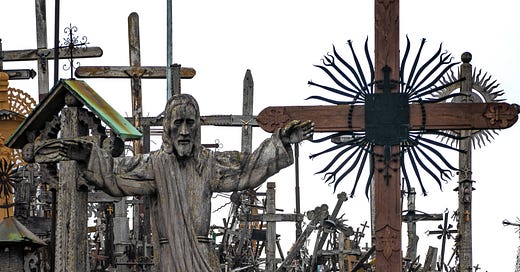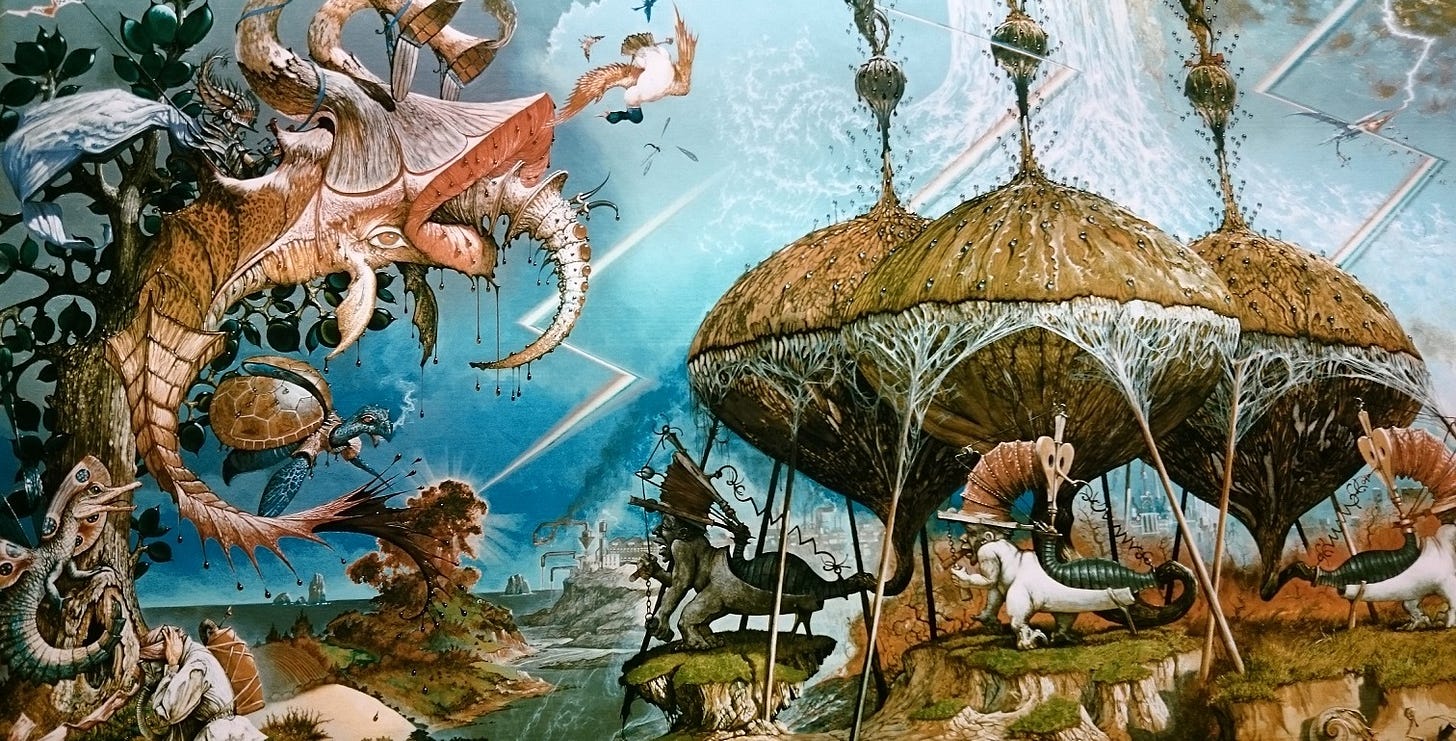
It's no surprise that Leonard Cohen's Hallelujah, popularized by Jeff Buckley, is well loved and often cited. It's the perfect song. Sad and sweet, it references music itself; plus it's got faith, it's got beauty, it's got love, it's got sex. For the bible literalist, it's got blasphemy—though Cohen was Jewish, and it's been called a quintessentially Jewish song.
Personally, I think modernity, the death of God, the soulless morality of modern liberalism—these have left a craving for the taste of praise on our lips. Humans find catharsis in singing hallelujah, now as when we were faithful—and Cohen's vaguely sadomasochistic scene, of a man's devotion to a cruel but alluring lover, provides a safe and familiar target for the materialist's dispossessed urge for worship.
You can't argue with the Cohen song, of course. But as hallelujahs go, I've always preferred the chillingly beautiful Nick Cave tune. It opens with violin, chanting girls deliver its heartbreaking final lines, and it has my vote for saddest lyrics ever. That I am so moved by its story's climax, I think, speaks to my comparatively masculine orientation toward sex and love. Cave's protagonist makes a sacrifice I can't imagine making, one borne of a suffering I've been spared and a desperation I haven't known, one deeply honorable, if of an honor misplaced, one that elevates love beyond the sexual, beyond the requited, beyond even the deserving. Now that I think of it, Cave and Cohen draw from the same well. The hallelujah in each is a “cold and broken” one, a reverence that persists in the face of tribulation.
While searching for “Hallelujah” on Spotify, I find dozens of covers of the Cohen song, from the quirky to the straightforward ballad, many delivered by artists who may have missed the point. My search also turns up an unrelated tune by one of my faves, Tyler Childers (who’s a hipster, despite the Appalachian sheen), and another by the 2nd Chapter of Acts that I loved when I was knee-deep in church life. And it delivers Handel's Messiah, which I sang in high school choir—something that probably wouldn't happen today, even if it was palatable to my openly gay music teacher in the eighties.
A search on Bible Gateway, however, turns up a surprise: how infrequently the word appears in the holy text. In King James, it shows up only in Revelations (with a different spelling). In other translations, it appears in Psalms as well, but that’s all.
In the nineties, after my faith had left me, I gifted my fantasy art-loving cousin a book by illustrator Patrick Woodroffe called Hallelujah Anyway, which I recently came across again. Opposite an illustration of a faerie sailing the night sky in an airborne floret, an old-fashioned, rhyming poem details the six days of Creation as described in Genesis. The author praises God for days one through five, for the creation of earth and sky, plant and beast. But he finds no favor for the advent of humans on day six, whom he believes carelessly “threw away” what God wrought in the days prior. Nonetheless, he forgives the Creator for this mistake. “Let not on God our censure be,” he writes in the sidebar. “He did his best, and so should we.”
A beautiful sentiment, really, calling for the excellence of mortals, as I did in my essay on my aunt's funeral. “There's something to be said for taking care of the little things that are within your sphere, day in and day out, of finding the gaps and filling them, thereby making the world an incrementally better place.”
Christian me would have been horrified by Cohen and Woodroffe’s irreverence. New atheist me would have found no value in the artists’ recrafting of problematic religious tropes. But the me of today remembers the value of worship, the gratitude of it, the withdrawal from materialistic interests to focus on higher truths. The faithless and jaded me of today wants to love so unabashedly. Today, these small hallelujahs for the cherished and the imperfect resonate.





It seems to me you’ve seen a few crossroads in your time pertaining to faith and religion. It’s understandable when we consider the last fifty years and all the changes that you and I have seen that major questions of faith would and have, jumped out at us from every hidden corner. My mother always worried ( as all mothers do ) that I had lost my faith. I always answered the same way .....” No mom I listened and learned and now I just just believe my own way “ She always trusted. Is it possible your at another crossroad again?
I was happy you spoke of some of your music. Even happier to see your interest in real country. I also want to thank you for the Nick Cave song that has eluded me until today. I can’t believe being a fan of his that I hadn’t heard it. I do have a seat at his October show in Austin and will let you know if it’s included that evening. I hope it is. While I’m on this long winded subject have you listened to Cohen’s song Famous Blue Raincoat ? It stoped dead in my tracks years ago.
I was saved by the spirit of rock and roll :)